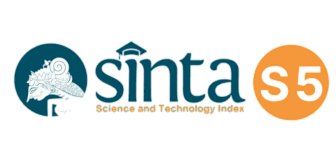Federal character policy implementation and governance in Nigeria
Downloads
Against the backdrop that the crisis of governance in Nigeria will be resolved with adoption of equitable representation of people from their various tribes to participate in public service; the 1979 Constitution of Nigeria introduced the Federal Character Policy. Even with this, Nigeria is still battling with politics of trying to conciliate the regional blocs to solve governance crisis. This paper examined the state of federal character policy in the governance process of Nigeria. The paper is theoretical in nature and it relied on data sourced from relevant textbooks, journals, newspapers, and other official records. Descriptive method was used to analyse the data. Using the participation approach as theoretical framework, the paper found out that the federal character policy was good to protect the interest of minority groups, and promote national patriotism and unity in diversity. The paper also found out that the federal character policy was badly implemented as it was hijacked by ethno-regional patrons in the North, South and East to serve their selfish interests which have deepened the governance crisis in Nigeria. The paper concluded that the federal character policy has not been implemented to improve governance process Nigeria. It recommended among others that Nigeria should have leadership that will not allow the federal character policy to be hijacked by one or a few ethno-regional patrons to pursue their selfish interests.
Copyright (c) 2025 Gabriel Izokpu Oikhala, Dauda Momodu Giwah

This work is licensed under a Creative Commons Attribution-NonCommercial-ShareAlike 4.0 International License.
- Copyright of this journal is possession of Editorial Board and Journal Manager, by the knowledge of the author, while the moral right of the publication belongs to the author.
- The formal legal aspect of journal publication accessibility refers to Creative Commons Atribusi-Non Commercial-Share Alike (CC BY-NC-SA), implies that publication can be used for non-commercial purposes in its original form (cannot be modified).
- Every publication (printed/electronic) are open access for educational purposes, research, and library. Other than the aims mentioned above, the editorial board is not responsible for copyright violation.












